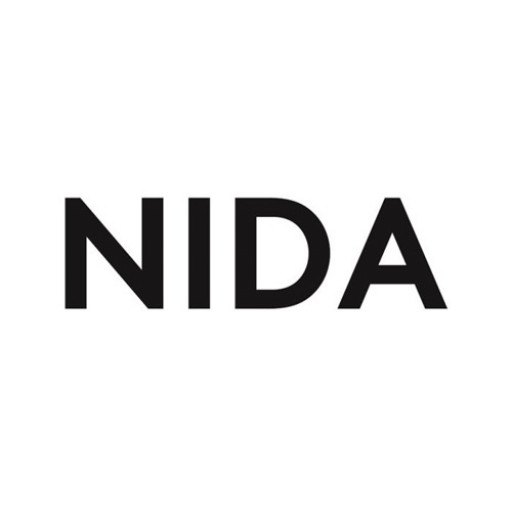Photos of university / #uva_amsterdam
The Media Studies: Television and Cross-Media Culture programme at the University of Amsterdam offers an innovative and comprehensive exploration of contemporary media landscapes. This interdisciplinary degree is designed to provide students with a profound understanding of how television and cross-media platforms influence society, culture, and communication. Throughout the programme, students critically analyze the evolution of media technologies, the impact of digital innovations, and the ways in which media content is produced, distributed, and consumed in today’s interconnected world. The curriculum combines theoretical frameworks with practical applications, enabling students to develop skills in media analysis, production, and research. Subjects covered include media history, media theory, audience studies, media production techniques, and media policy. Special emphasis is placed on the role of television within the broader context of cross-media environments, including online, social media, gaming, and mobile platforms. Students have the opportunity to engage with contemporary issues such as media ethics, representation, and the role of media in shaping public opinion. The programme encourages an international perspective, fostering critical thinking about global media trends and cultural differences. With its combination of academic rigour and practical training, graduates are equipped to pursue careers in media production, broadcasting, media consultancy, policy analysis, or further academic research. The programme benefits from the university’s strong links to media industries and its vibrant academic community, providing students with valuable networking opportunities and exposure to current industry practices. Overall, the Media Studies: Television and Cross-Media Culture programme prepares students to become thoughtful, innovative media professionals who can navigate and shape the rapidly changing digital landscape.
The Media Studies: Television and Cross-Media Culture program at the University of Amsterdam offers a comprehensive exploration of the evolving landscape of media in the digital age. This interdisciplinary bachelor’s degree combines theoretical insights with practical skills to prepare students for the dynamic world of media production, analysis, and critique. Throughout the course, students examine the history, development, and societal impact of television and cross-media platforms, gaining a deep understanding of how media influences culture, politics, and everyday life. The curriculum covers a broad range of topics including media theory, media history, content analysis, and media ethics, alongside specialized modules focused on television production, digital storytelling, and multimedia design.
Students will engage with case studies from both traditional and new media outlets, learning to critically analyze media content and its effects on audiences. The program emphasizes hands-on experience through workshops, project-based assignments, and internships, allowing students to develop practical skills in media creation, editing, and distribution. In addition, interdisciplinary modules encourage exploration of related fields such as communication, sociology, and cultural studies, providing a well-rounded educational experience. The program also fosters a global perspective, highlighting international media trends and cross-cultural communication.
By the end of the program, graduates will be equipped with the critical thinking tools and technical abilities necessary for careers in media production, journalism, content management, broadcasting, and digital communication. The University of Amsterdam’s vibrant academic environment and strong industry connections ensure students have ample opportunities for networking and professional development. Whether interested in behind-the-scenes production, media research, or strategic communication, students will find a rich learning environment designed to prepare them for the challenges and opportunities of contemporary media industries.
The Media Studies: Television and Cross-Media Culture Bachelor's degree programme at the University of Amsterdam requires prospective students to have completed their secondary education with strong academic performance, particularly in subjects related to social sciences, humanities, or communications. Applicants are typically expected to demonstrate a keen interest in media, television, and digital culture, as well as critical thinking and analytical skills. International students need to fulfill language proficiency requirements, such as a TOEFL or IELTS score, to prove their ability to comprehend and communicate effectively in English.
Admission is competitive and may involve a selection process that assesses motivation, previous academic achievements, and relevant experience or interest in media studies. The programme's curriculum emphasizes interdisciplinary approaches, combining theoretical foundations with practical skills in media analysis, media production, and digital communication. Students are expected to engage actively in seminars, workshops, and project work, which require them to demonstrate creativity and collaborative skills.
In addition, there may be specific prerequisites or recommended courses in media, cultural studies, or related disciplines for applicants to better prepare for the programme. The university encourages prospective students to review the detailed admission criteria available on the official website, as requirements can vary depending on the applicant's educational background and country of origin. Successful admission confers the opportunity to participate in a challenging curriculum designed to prepare graduates for careers in media, broadcasting, digital content creation, and related fields. Overall, potential students should possess a combination of academic readiness, passion for media culture, and a desire to critically engage with contemporary television and cross-media practices to meet the programme requirements.
Duration: The Bachelor's in Media Studies: Television and Cross-Media Culture at the University of Amsterdam typically has a duration of 3 years, full-time.
Tuition Fees: For the academic year 2023-2024, the tuition fee for non-EU/EEA students is approximately €16,000 per year. For EU/EEA students, the fee is about €2,300 per year. These fees are subject to change annually and may vary depending on government policies and university regulations.
Funding Opportunities: Students enrolled in the programme can access several financial support options. The University of Amsterdam offers scholarships such as the Amsterdam Excellence Scholarship (AES) and the Holland Scholarship for outstanding international students. Additionally, students can explore external scholarships offered by their home countries, private foundations, or international organizations.
Student Loans and Grants: In the Netherlands, students from the EU/EEA typically do not require loans due to lower fee structures and access to Dutch student grant schemes. Non-EU/EEA students often finance their studies through personal savings, loans, or external funding sources. Dutch government student grants are generally available only to Dutch and some European students; international students should verify eligibility depending on their nationality.
Part-Time Work: International students in the Netherlands can work part-time during their studies, up to 16 hours per week during the semester and full-time during holidays. This can provide supplementary funding to cover living expenses but generally isn't sufficient to cover tuition fees entirely.
Cost of Living: The cost of living in Amsterdam for students is estimated at approximately €900 to €1,200 per month, covering accommodation, food, transportation, insurance, and leisure activities. Students are advised to budget accordingly and seek affordable housing options, such as student dormitories or shared apartments.
Payment Plans: The University of Amsterdam offers flexible payment options to help manage tuition fee payments, including instalments over the academic year. Students should consult the university’s financial services or student administration to arrange payment plans.
Additional Funding: Some students may participate in research assistantships, teaching assistantships, or internships related to their field, which can provide additional income and professional experience, although these are not guaranteed and depend on availability and academic performance.
Overall, financing a degree in Media Studies: Television and Cross-Media Culture involves planning for tuition, living costs, and possible funding sources. Prospective students are encouraged to carefully research scholarship opportunities and financial aid options early in the application process to ensure adequate preparation for the financial aspects of their studies.
The Media Studies: Television and Cross-Media Culture programme at the University of Amsterdam offers students an in-depth understanding of contemporary media environments, with a focus on television and cross-media practices. The curriculum is designed to explore the evolving landscape of media production, consumption, and analysis, emphasizing the cultural, social, and technological aspects that influence media industries today. Students gain theoretical knowledge of media theories, audiovisual analysis, and the history of television and media cultures, alongside practical skills in media production, critical analysis, and research methods.
Throughout the programme, students examine how television functions as a cultural institution and how cross-media strategies are shaping the entertainment and communication industries. The programme encourages students to critically assess media content and production processes, considering issues such as media influence, globalization, digital transformation, and the role of new media platforms. Additionally, students have opportunities to engage in hands-on projects, internships, and collaborations with media organizations, fostering practical understanding and industry connections.
The programme is conducted in English and typically has a duration of three years for a bachelor's degree, with opportunities to pursue a master's degree afterwards. Graduates are equipped to work in various fields such as media production, broadcasting, media analysis, cultural journalism, and media consultancy. The interdisciplinary approach combines insights from media studies, communication sciences, cultural studies, and media technology, preparing students to contribute critically and creatively to media industries and academic research.
Admission requirements include a secondary school diploma equivalent to the Dutch VWO, with good academic records and an interest in media and cultural studies. The University of Amsterdam is renowned for its vibrant academic community and its emphasis on research-led teaching. The campus offers state-of-the-art facilities, extensive library resources, and a diverse international student body. Overall, this programme provides a comprehensive foundation in media studies, with a special focus on television and cross-media culture, blending theoretical inquiry with practical application to prepare students for careers in a rapidly changing digital media landscape.






